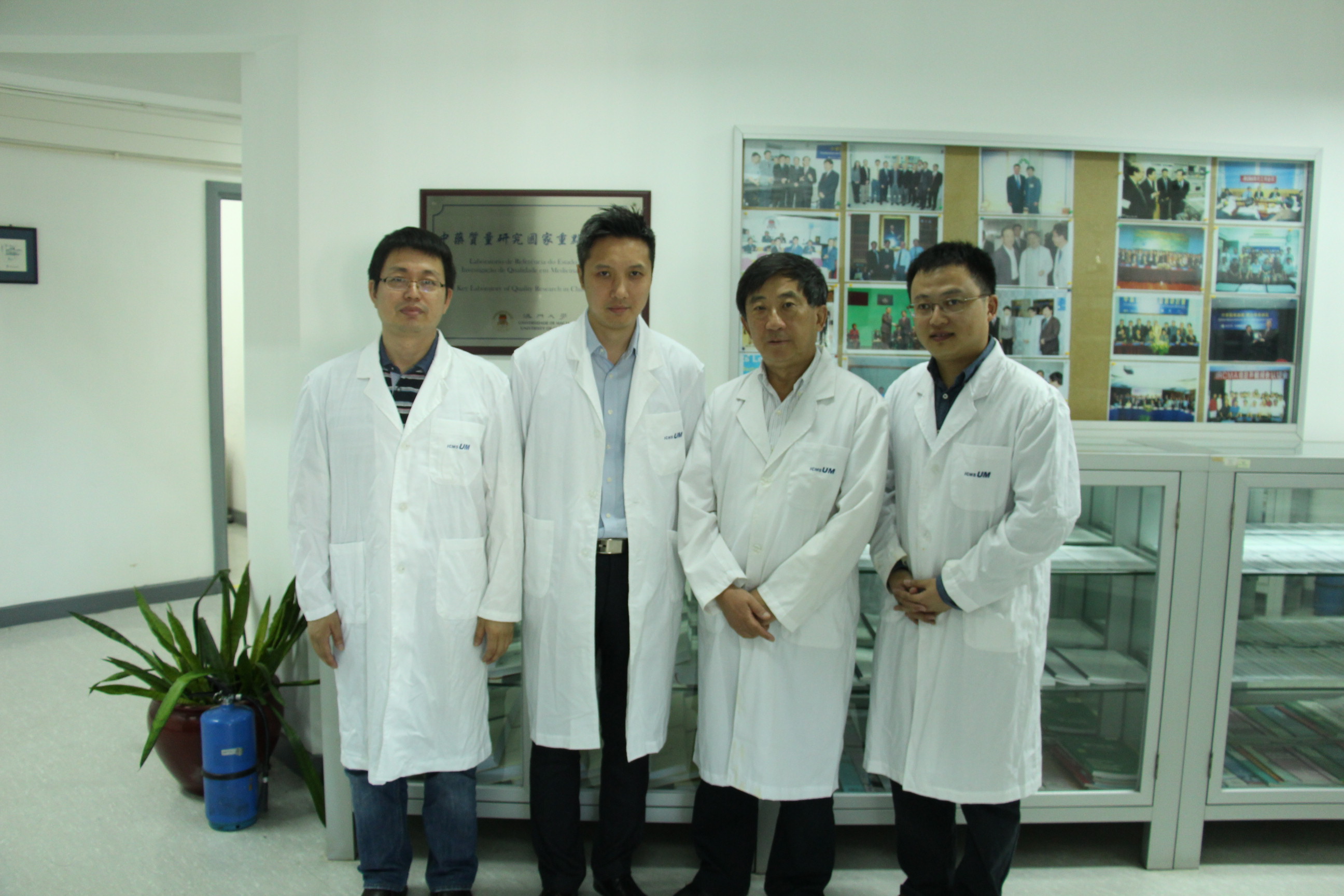The University of Macau (UM) has published more than 367 papers on Chinese medicine in SCI-indexed international journals over the last three years, with many new research findings published this year. This is testament to UM’s ever-increasing research capacity and international influence in the field of Chinese medicine.
On the rise is not just the quantity, but also the quality of the papers. Many of the papers by the faculty members and students of UM’s Institute of Chinese Medical Sciences (ICMS) and the State Key Laboratory of Quality Research in Chinese Medicine (QRCM Lab) have appeared in top international scientific journals with high impact factors. One of the papers, co-authored by ICMS associate professor Leung Chung-hang and Hong Kong Baptist University Department of Chemistry assistant professor Dr. Edmond Ma, has been published in the Nature Publishing Group’s Cell Death & Disease journal. Dr. Leung and Dr. Ma’s study, entitled “The Identification of a Natural Product-like STAT3 Dimerization Inhibitor by Structure-Based Virtual Screening”, successfully identified a natural product-like STAT-3 dimerization inhibitor by using advanced computer-aided design (CAD) technology and biological activity evaluation, which can potentially inhibit tumor cell growth. The study provides a theoretical and experimental basis for potentially developing a new anti-tumor drug.
Additionally, Dr. Leung and Dr. Ma, in collaboration with experts from Kaosiung Medical University in Taiwan, have become the first in the world to successfully develop a novel compound that could potentially be used to treat skin cancer. Dr. Leung and his collaborators found that the rhodium(III) complex was able to effectively hinder the growth of melanoma in the mouse model. They are the first in the world to utilise a rhodium(III) complex to inhibit STAT3 directly. The related paper, entitled “Antagonising STAT3 Dimerization by a Rhodium(III) Complex”, has been published in the prestigious chemistry journal Angewandte Chemie (International Edition, 2014)
Apart from Dr. Leung, numerous other faculty members have published papers on Chinese medicine this year. The research team headed by ICMS Director Prof. Wang Yitao and their collaborators from the China Academy of Chinese Medical Sciences have co-published a paper on the possible applications of DNA barcoding in natural products and Chinese medicine research in Biological Reviews, a top biological journal. ICMS assistant professor Dr. Su Huanxing and his collaborators from Hong Kong and mainland China have co-published research papers in the Nature Publishing Group’s Nature Methods. Dr. Su and his collaborators proposed a new technique for extracting neural progenitor cells from urine samples, offering a new direction for regenerative medicine. Dr. Wang Chunming and his collaborators from Nanjing University have co-published a paper entitled “Harnessing the Power of Macrophages/Monocytes for Enhanced Bone Tissue Engineering” in the Cell Press’s Trends in Biotechnology journal.
ICMS Director Prof. Wang Yitao stressed, “The new campus represents a new beginning and brings new opportunities.” He says that after moving onto the new campus, ICMS and the state key lab will continue to make full use of Macao’s advantage of being a place where the East meets the West to strengthen cross-regional and cross-disciplinary collaboration, nurture and introduce talent in various fields, build a platform for international collaboration in Chinese medicine research, increase ICMS’s academic influence and its capability to carry out innovative research, so as to repay the support of society and the faith Macao people have in the university and ICMS.
The QRCM Lab was established in 2011.Over the past three years, the ICMS and the QRCM Lab have not only continuously increased investment in research and recruited outstanding academics from various backgrounds, but they have also encouraged cross-disciplinary and cross-regional collaboration to explore new areas of research in Chinese medicine in collaboration with universities in Macao, Taiwan, Hong Kong, mainland China and overseas. Currently the ICMS and the QRCM Lab are working on numerous academic collaboration and research exchange programmes with universities in the United States, Europe, and the Asia-Pacific region.Should you have any inquiries about the press release, please feel free to contact Ms. Albee Lei and Ms. Kristy Fok at(853)8822 8004 or prs.media@um.edu.mo or visit UM webpage www.umac.mo.


